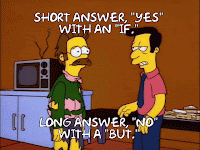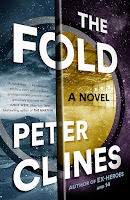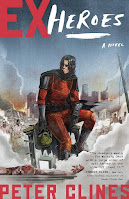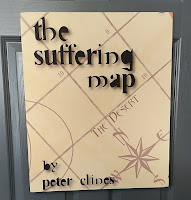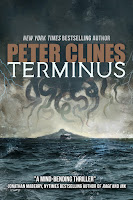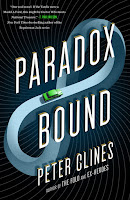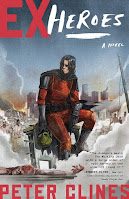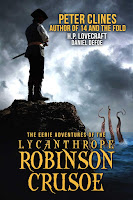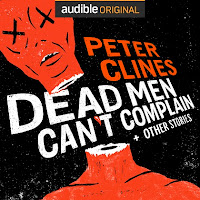In the before times I tried to update the frequently asked questions every six months or so. Last year kinda blew that habit out of the water. A lot of this year, too. With all the disruption to, y’know, everything. Some things slowed to a crawl. Others came to a grinding halt.
And that meant I had a lot less news to share and/or questions to update.
Folks are finally getting used to this new normal, though, and enough things are getting back in motion that I figured it was finally worth updating this.
So here’s fresh answers to some of the most common questions I get. So now when people ask me those questions (again!)—or when their teacher says “Hey, hunt down an author on social media and ask them a bunch of questions”—I can just point you at this document, most likely pinned near the top of my social media pages and this blog (look, there it is in the right-hand-column). Which means the answers are all right here.
Or in the books. There’s lots of answers in the books. Really.
1) When are we going to see something new?
Next up for me is going to be The Broken Room, coming out in early March 2022—about six months from now! We technically have an exact date, but I want to hold off sharing that just in case things go wonky sometime between now and then. As a lot of things are right now. I wrote The Broken Room over lockdown last year and it’s a bit different for me. After a couple phone calls and discussions, my agent pitched it to publishers as “Jack Reacher meets Stranger Things.” And it turns out, hey, that sounded interesting to some folks.
After that—possibly before depending on how a few things go—I’m going to (finally) put out my short story collection as an ebook. Yeah, just an ebook, sorry. Dead Men Can’t Complain + Other Stories has been an audio collection for a while, but it really needs to get out more. And (if I can pull this off) there may be some cool bonuses for this version.
And, after some strategizing, my agent and I are talking about two more ideas you might like and he may be talking to certain folks about over the holidays…
2) Why did you do all these “Audible exclusives” for the past few years ?
First off, I only did two. Well, okay, four, since they offered to release some previously-published, out-of-print stuff nobody else was interested in anymore—The Eerie Adventures of the Lycanthrope RobinsonCrusoe and a bunch of short stories we combined into Dead Men Can’t Complain, but those two weren’t even exclusives.
Second, there’s a solid argument to be made that the majority of my fan base is audiobook listeners. Audible knows this, too, so when they heard about Dead Moon and Terminus they made me an extremelygenerous offer for exclusive rights, meaning both of them would be audiobook only for the first six months they were out. Then I’d be free to do what I want with them.
Yeah, I know it made some of you grind your teeth. Sorry if you weren’t an audiobook listener (for whatever reason) and it left you out of the loop for a bit. My agent and I talked a lot about the pros and cons of doing of those deals. In the end, I really wanted to tell those stories and that was the overall best way to do it. Again, I’m sorry if it put you in a bad spot.
3) Do you make more money if I buy your books in a certain format?
This sounds like an easy question, I know, but there’s a bunch of conditionals to any answer I give. A huge chunk of each and every book contract is just all the different terms and conditions for when and if and how people get paid. Lots of “ifs” and “excepts” and “unlesses.”
For example… format matters, sure, but so does whereyou bought the book. And when. And how many people bought it before you. And if it was on sale. And who actually had the sale (publisher or distributor). And all of this changes in every contract. What’s true for, say, Paradox Bound isn’t true for Terminus. In some situations. Usually.
TL;DR—just buy the format you like. It’ll all work out fine.
4) So still no paper version of Terminus orDead Moon?
No, sorry. There’s a couple of different reasons for it involving different business and PR things. If you’re really interested, I went over all of it about a year or so back. There’s still a chance both books may still become available if there’s a big demand for them (feel free to tell Crown Publishing you want to read them in print and would buy half a dozen copies), but for the moment these (and a few of my other older books) are only going to be ebook and audio. Sorry.
5) When are we going to see a movie/ TV series/ graphic novel/ video game of your books?
Well, first off, I hope you understand I have pretty much zero influence on Netflix making a Threshold series or Disney+ doing aLycanthrope Robinson Crusoe movie. When we see a TV series or film adaptation, it means the filmmakers went to the writer, not the other way around. Think about it. If the writers just had to say “hey, make this into a movie,” wouldn’t most books be adapted by now? Everybody’d be doing it.
That said… yes, there’s a potentially big thing going on right now. But like so many
Really, you’ll probably hear me shrieking from wherever you are on Earth.
6) Well, is there anything we can do to help?
Buying books is always the best step. Talking about them is a close second.
So talk about books you like (anyone’s books, not just mine). Mention them to friends, write reviews (always good), tag online streaming channels if you want to talk about how this or that should be a movie. Word of mouth is the best (and easiest) thing to do.
7) I thought you don’t like people talking about your books. Now I’m confused.
I’m always thrilled and amazed people talk about anything I wrote. Seriously. I think most writers are. What I can’t stand, personally, are people who blurt out spoilers that ruin these stories for other people. It’s why I avoid those questions in interviews, ignore them on Twitter, and why—where I can—I delete (or block) posts that reveal things from a book.
And not just my stories! You shouldn’t mess up other stories, either. Movies, TV—I’m just saying, if you enjoyed it spoiler-free, why not try to give other people a chance to enjoy it the same way? Especially these days when release dates/airdates aren’t the ironclad things they used to be. Even if you didn’t enjoy it, they might.
8) Do you have any plans to attend ########-Con?
I’ve been doing a lot of virtual stuff, but I’m hoping the world will be in a place where I can get back out there next spring and say “Hi” to folks. Really, I’d love to do a lot of stuff in February-through-May to help promote The Broken Room. So if you want to see me at your local con, let them know. Email them, tweet them, post on their Instagram account. Reach out, vote, and let your voice be heard.
Also, generally this is a sooner-is-better type thing. If you’ve got a convention near you that plans to go ahead in February, there’s a good chance they’re putting together a guest list now. So don’t wait—let them know right now that you want K. Arsenault Rivera there!
And me. Let them know you want to see me. Y’know… if you do.
9) Could you explain the whole “Threshold” series?
Threshold is the umbrella label for the shared “cosmic horror” universe I unknowingly began a little over nine years ago with 14. It refers both to doorways and also things reaching a critical point–common themes in many of the stories. There are some books that form a more linear story, a “series” if you will, and some that stand alone. Which. in all fairness, makes things a bit awkward sometimes. I know the marketing folks sometimes pushed Thresholdas a pure, straightforward series even though I’ve said many, many times that it’s just a shared universe. I know at times this gave some readers false expectations for some books, and I apologize if that was you.
10) Is Ex-Isle the last Ex book?
Yeah, Ex-Tension is on the back burner for the foreseeable future. Sorry.
The truth is, every series has a limited life. Book one always sells best, not as many people show up for book two, even less show up for book three, and so on. Not a lot of folks leap in on book five, y’know? Something may happen to give the first book a boost (and all the other books after it) but they’re always going to be on a near-constant downward slope heading for that big red line where things aren’t profitable. None of the Ex-Heroes books ever lost money (thank you all for that), but when the publisher looked ahead to book six… well, hitting said line was pretty much unavoidable.
11) Have you considered a Kickstarter or a GoFundme?
Yeah, sorry, the answer’s still no. I love these books and had tons of fun writing them. I’m still amazed there are so many fans who love them so much. But the math is pretty simple—if enough people were willing to pay for another book, the publisher would be willing to put out another book. And all the numbers say that’s just not the case.
Yeah, I know some of you might be willing to pay twice as much to see one more book, but I think we can all agree there’s at least as many people (probably more) who wouldn’t pay anything. And that’s the math again—it just doesn’t work out for this.
Another point to consider. I’ve usually got a good sense of what I’m working on for at least the next year, sometimes even longer. If I do a crowdfunded project, I have to schedule my time under the assumption it’s going to succeed, which means telling my publishers any other projects need to be put off and scheduled accordingly. And that leaves a six or seven month hole in my schedule when the Kickstarter flops. Which—again—all the math says is what’ll happen.
So again, no. Sorry.
12) Will you read my story and tell me what you think?
Short answer… no.
Long answer… look, if I said yes to even a third of the requests I got, I’d be spending most of my time reading and doing critiques instead of writing. I don’t mean to sound mercenary, but… writing is how I pay my mortgage. And buy food and booze. And I really like food and booze. And my house. So when someone asks me to read stuff, they’re asking me to give up a few hours of work. Would you want to give up a few hours of work? Plus, I do have this ranty writing blog sitting right, y’know, here with over a decade of advice and tips.
Also, sad truth is some folks are not too bright and lawsuit-crazy, and they ruin it for everyone else. Somebody shows me a piece of bland, generic fanfic, then a few years from now they sue me for stealing their ideas. Yeah, I know how stupid that sounds, but I’ve actually been subpoenaed and deposed for lawsuits with less behind them than that. It’s why I’m verrrryleery when I get a long message along the lines of “You know what you should really do next with the people from 14…” Heck, some writers respond with cease & desist orders when they get sent stuff like this.
So the long answer also boils down to “no.” And if you send stuff without asking, I’ll delete it unread, just like spam mail. And probably block you.
13) What’s up with your Facebook page?
Ahhhhh, Facebook. Where we’re the product and the target audience. Just like Soylent Green.
Sad fact is, Facebook made it pretty much pointless for me to have a fan page there. They altered their algorithms over the years so my posts went from 70-85% engagement to barely scraping 10-15% most of the time. All to make me pay to reach people who were already following me. Which I won’t do for a few reasons, a big one being folks pretty solidly showed years ago that paying for views on Facebook actually decreases your reach. Seriously.
Sure–it’s their site, they can run it however they like. And yeah they absolutely deserve to make money off it. I’m a progressive, but I still believe in (regulated) capitalism. But part of capitalism is you have to make something I want. I don’t have to use your product.
Plus there’s all of Facebook’s side ventures. Collecting countless amounts of personal data. Deliberately spreading misinformation. Malicious social engineering. If you think I’m exaggerating, look up articles about how Facebook shaped perceptions or spread propaganda in
So, yeah, I deleted my Facebook account almost two years ago (long overdue). There’s still a fan page there, but it’s just sort of a zombie page (zing) with no administrator.
14) What about Twitter or Instagram?
I’m @PeterClines on both. Fair warning–as I mentioned above, I’m progressive and I’m a bit more political on Twitter. Most Saturdays I also drink and live-tweet bad B-movies while building little toy soldiers so… look, don’t say you didn’t know what you were getting into.
Instagram is probably the geekier of my social medias. How is that possible, you ask? Well, there’s lots of toys and LEGO and model robots. And cats. Can’t have an Instagram account without cats. Sometimes there are overlaps in these things.
Yeah, I know Instagram’s also owned by Facebook, but (for the moment) they’re not being quite so reprehensible and algorithm-manipulative on Instagram. So (also for the moment) I’ll still be there.
And I think that should answer about 83% of your questions, yes…?




